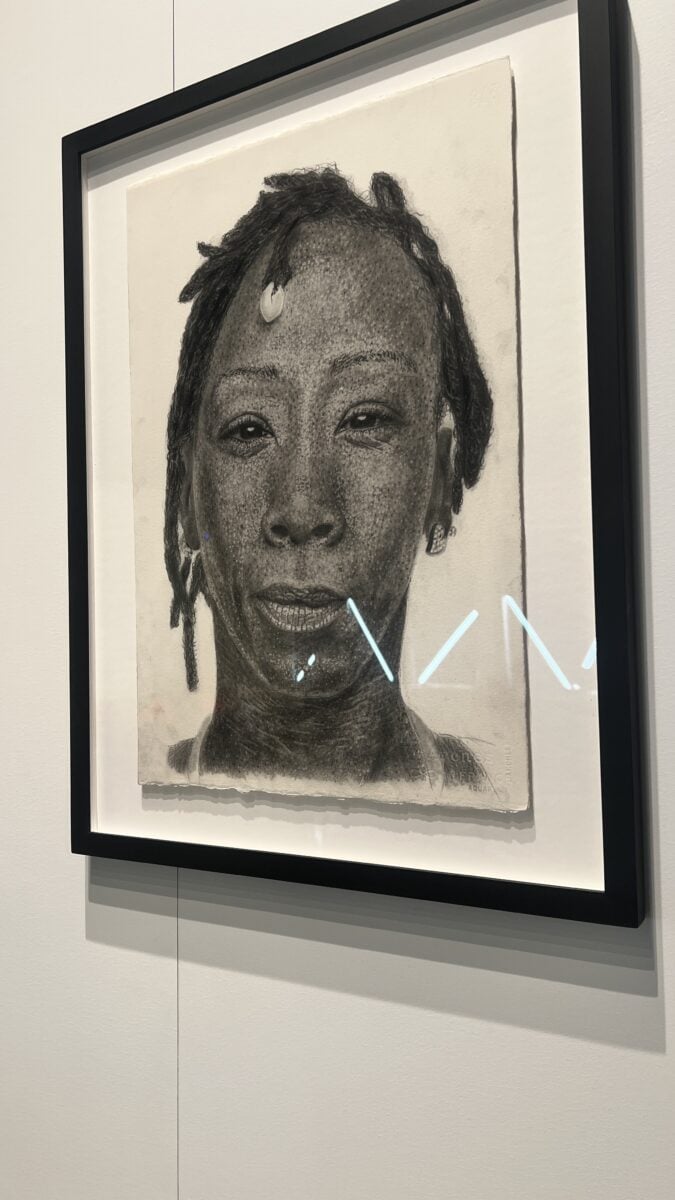GANGGANG and the Marion County Re-Entry Coalition (MCRC) have collaborated to unveil the groundbreaking art exhibition “Perceptions,” which debuted for a two-day showing in the 10 East Arts Hub, Thursday, Feb. 29.
The exhibition offers an intimate exploration of the reentry experiences and emotions of formerly incarcerated individuals.
RELATED: New measure aims to reduce prison-to-homelessness pipeline
“It is very important when we say we’re amplifying culture in order to identify what the culture of the city and community is. It is getting down to the truth and speaking on real stories,” said Jose Martinez, development coordinator for GANGGANG.
“We would like for this to be a traveling exhibition because we do want to be able to reach other communities and people.”
Through interactive visual art, the exhibit aims to destigmatize conversations surrounding reentry while shedding light on the personal development of those navigating life beyond bars.
Martinez said he was very active in directing and helping their storytellers feel comfortable through conversations to shoot their photos.
Perceptions: Previously incarcerated
There were two artists who worked on the exhibition:
Jay Goldz, a photographer, often works with portraiture, and this is the first time he has showcased his work in an exhibition like this; William Minion is an illustrator and graphic artist who created hyper-realistic drawings for the exhibition.
Featuring photography and charcoal illustrations, “Perceptions” humanizes the journeys of five previously incarcerated people who focus on themes of identity, grief, overcoming and adaptation to a new normal.
“This is part of the strategy around humanizing people who have criminal histories. They’re on a human journey, and we’re all on a human journey. We’re all in that struggle together,” said Lena Hackett, coordinator for the Marion County Re-Entry Coalition.
“I think the real power behind this is the storytelling. It’s the stories people tell just about how they have gotten to where they are. You have a visual representation of how people are seen and how they see themselves.”

Indiana stats
Indiana has an incarceration rate of 765 per 100,000 people, according to the Prison Policy Initiative’s profile on Indiana.
Over 49,000 Hoosiers are locked up in various facilities, including 19,000 in local jails, 25,000 in state prisons, 3,400 in federal prisons, 1,200 in youth detentions and 150 in involuntary commitment.
Additionally, Indiana has more people in local jails, with 122,000 Hoosiers booked into local jails across the state annually.
Indiana’s rates of imprisonment have grown dramatically in the last 40 years.
Today, Indiana’s incarceration rates not only stand out nationally, but internationally as well.
People of color are overrepresented in Indiana’s prisons and jails.
Black Hoosiers are incarcerated at a rate 4.4 times higher than their white counterparts while making up 10.3% of the population throughout the state compared to 84% of white Hoosiers.
Indiana releases roughly 195,142 men and 59,425 women from its prisons and jails each year.
Art imitating life
“The coalition has been around for 15 years. It’s a lot of system redesign, work and policy work with some risks of figuring out what kind of direct services need to happen,” said Hackett.
Previously incarcerated individuals face discrimination in jobs and housing that still limits how far they succeed in life, which can result in them going back to a life of crime.
A majority of the faces in the exhibition were African American.
“GANGGANG, we get to introduce them to how we can think creatively. It’s important for art to speak to a variety of different topics. This showcases a very human to human experience,” said Martinez.
Contact staff writer Jade Jackson at (317) 762-7853 or by email JadeJ@IndyRecorder.com. Follow her on Twitter @IAMJADEJACKSON.







